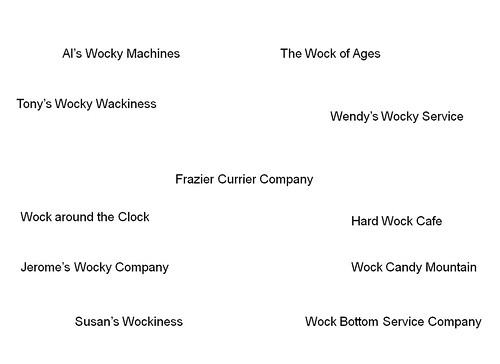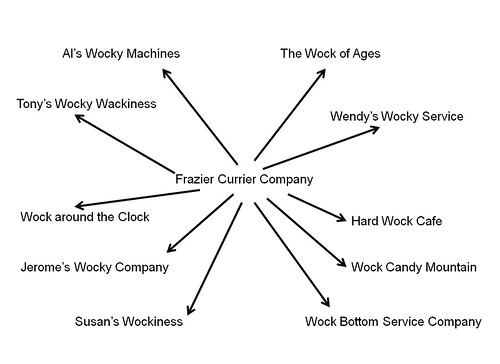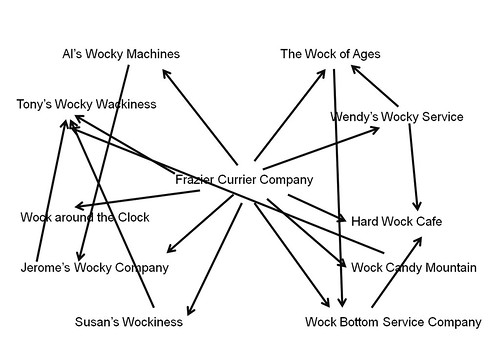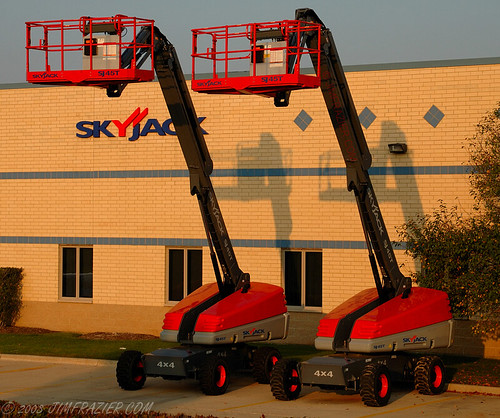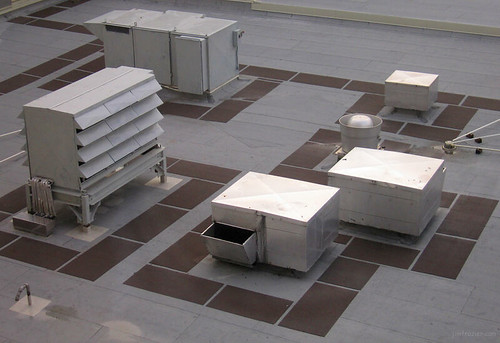 This is part of a series of articles on construction contractors
This is part of a series of articles on construction contractors
In virtually every state, contractors pay tax on the equipment and supplies that they use to build a structure. As with any business, they're
using those items. But what about building materials? These are the ingredients that become a part of the structure. They are
tangible personal property when purchased by the contractor and, after being affixed to the building, become
real property. Examples would be structural steel, bricks, shingles, millwork, concrete, etc. That's what contractors do: they turn tangible personal property into real property.
In most states, the contractor pays tax on the building materials as well as equipment and supplies and he (or she) doesn't charge his customers tax - either on the materials or his services*. The materials transferred as part of the sale aren't taxable for two reasons:
1. The materials were used by the contractor to provide the construction contracting service. Therefore they are consumed by the contractor and he pays the sales or use tax.
2. The materials, when transferred to the buyer, are no longer tangible personal property - they're now real property. And sales and use taxes generally only apply to sales of tangible personal property. The contractor is the last person to buy the building materials as TPP and therefore he pays the tax.
Now the customer isn't getting something for nothing here. She (or he)
does pay the tax; it's just buried in the overall price of contract as another cost of the contractor.
Note that there's a danger when the contractor shows the tax separately on his invoice.
Sometimes a contractor does a job that doesn't involve major construction (eg. new or expanded building, or major remodel). What if they do a minor remodel or repair, or a smaller project like install flooring, fences, signs, communications equipment, appliances or other machinery and fixtures?
The question then becomes: is the contractor still doing c
onstruction contracting, or are they
selling tangible personal property, with installation?
If they're still performing a construction contract, they they don't charge tax to the customer - they pay tax on the building materials, as described above.
But if they're selling TPP with installation, they should be charging their customers tax and buying the building materials for resale.
Easy, right? But how do you tell? When, for example, does a minor remodel become a major project?
In the absence of any specific rules, here's the general idea. If the contractor is installing something that is
permanently affixed to the structure and integrated into the value or use of the structure, then the contractor has done construction contracting. In that case, he pays tax on the building materials and doesn't charge tax to his customers. But if he hasn't done
all of those things, then it is considered a sale of TPP with installation and he buys the materials for resale and charges the customer tax.

Examples:
1. A telecommunications rack is installed in the wiring closet. The installation is not permanent - everyone knows that it'll be replaced in a few years. It's not affixed since permanent damage wouldn't occur if it was removed (it's just bolted to the floor). And it doesn't have any affect on the value or purpose of the building.
One way of telling if an item has any affect on the value or purpose of the building is to ask, "if the building were sold, would the new owner care about the addition?" Other examples of this kind of thing would be signs, satellite dishes, draperies and blinds.
2. A landscaping contractor plants a nice tree in the front of the building. In this case, it is intended to be permanent, and damage would be caused if it was removed after a few months. And the value of the building is enhanced by the landscaping. So it's construction contracting and the contractor would pay tax on the tree when he purchased it and would not charge the customer tax.
Except it doesn't always work that way.
Many states will override the logic, or help it along, by simply declaring that certain types of contracting are sales of TPP with installation, and are taxable to the customer and purchased for resale for the contractor. A typical project that is handled this way is carpeting and sometimes other flooring. Why?
Well, the cynical Sales Tax Guy notes that the state gets more money. Remember, if the contractor pays tax on his purchase of building materials (as a construction contractor) the state will get less money because the tax is based on his
cost. But if the state can figure out a way to call it the sale of TPP with installation, then the tax is on what the contractor sells it for, which would typically be higher - more money for the state.
The other reason is that, with certain purchases, the true object of the customer is to buy a specific type of TPP, paying attention to things like the brand, model, features, capabilities, and price. They are really buying the TPP and the contractor is merely the installer. So it would be appropriate to treat as the sale of TPP with installation.
In a normal construction contract, the customer is more concerned about the capabilities and service of the contractor than the materials they use. I'm guessing that most customers don't really care about the brand of furnace (as long as it's a name brand) or the manufacturer of the bricks or shingles. Color and appearance? Yeah. But they'll let the contractor worry about the details.

Here's a stumper. What about window installation? In this case, appearance, features, brand and other attributes are very important to the buyer, probably as much as the ability of the contractor. So wouldn't it be the sale of TPP with installation? I'd say no, it would probably be construction contracting. Why? Because the windows are
permanently affixed to the structure and integrated into the value or use of the structure.
So, when you're trying to figure out if it's a sale of TPP with installation; as opposed to a contruction contract, you can use logic, as I've described above. But check to make sure that the state doesn't have their own ideas. These are usually shown in the regulations, and sometimes, if you're lucky, in a publication on the state web site.
There are other ways that some states will determine if the sale is treated as the sale of TPP with installation. One is if the deal is billed as a time and materials contract where the labor is separated from the materials. Another is if the customer takes title and possession of the materials before the actual work is done (eg. a roll of carpet delivered a week before the installers arrive).
To summarize:
When contractors do
construction contracting (eg. new or expanded building or major remodeling) they typically pay tax on the building materials and do not charge their customers tax.
But when the contractor does a job that is more of a sale of
tangible personal property with installation, then it's likely that the materials will be taxable to the customer and the contractor will be able to buy for resale.
*Remember, the rules are different in your state. Probably.
The Sales Tax Guy
http://salestaxguy.blogspot.com
See the
disclaimer - this is for education only. Research these issues thoroughly before making decisions. Remember: there are details that haven't been discussed, and every state is different.
Here's more information
Get these articles in your inbox - subscribe at
http://salestaxguy.blogspot.com
Don't forget our upcoming seminars and webinars.
http://www.salestax-usetax.com/
Picture note: any images above are hosted on Flickr. If you'd like to see more, click on the photo.

















